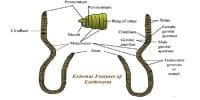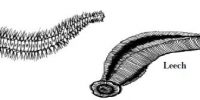The control of malaria measures fall under the following three categories.
Treatment of infected patient
(1) Plasmodium does not produce antitoxins or antibodies in human blood. Therefore malaria cannot be treated by inoculation or vaccination with immune sera. It can only be treated with drugs that may kill all stages of the parasite without poisoning the patient.Quinine, which is extracted from the bark of cinchona trees, had been used effectively for the past 300 years to cure malaria. The various synthetic drugs, such as Paludrine, Atabrin, Camoquin, Chloroquine, Resochin, Pamaquin etc are used as suppressants of various stages of the parasites.
(2) Prevention of infection: It can be effected in two ways.
(i) using protective measures such as mosquito nets, anti-mosquito creams (repellants) and coils. (ii) use of the prophylactic drugs; small daily dose of anti-malarial drugs will kill the parasite either in the sporozoite or merozoite stage.
(3) Control of vector It is perfectly clear that if the vector is completely exterminated the infection cannot be transmitted from one person to another. It is the most effective and surest way of controlling malaria. It is achieved by using effec-tive insecticides and by draining swamps. It destroys the breeding places of mosquitoes. Adult mosquito can be most effectively controlled by spraying DDT, malathion or any other insecticide in the houses; fumigating pyrethrum cresol and other compounds of naptha; sterilization of male mosquitoes. The young stages of mosquito can be controlled by introducing larvivorous fishes like Gambusia and Lebistes in ponds, lakes, canals and tanks.












